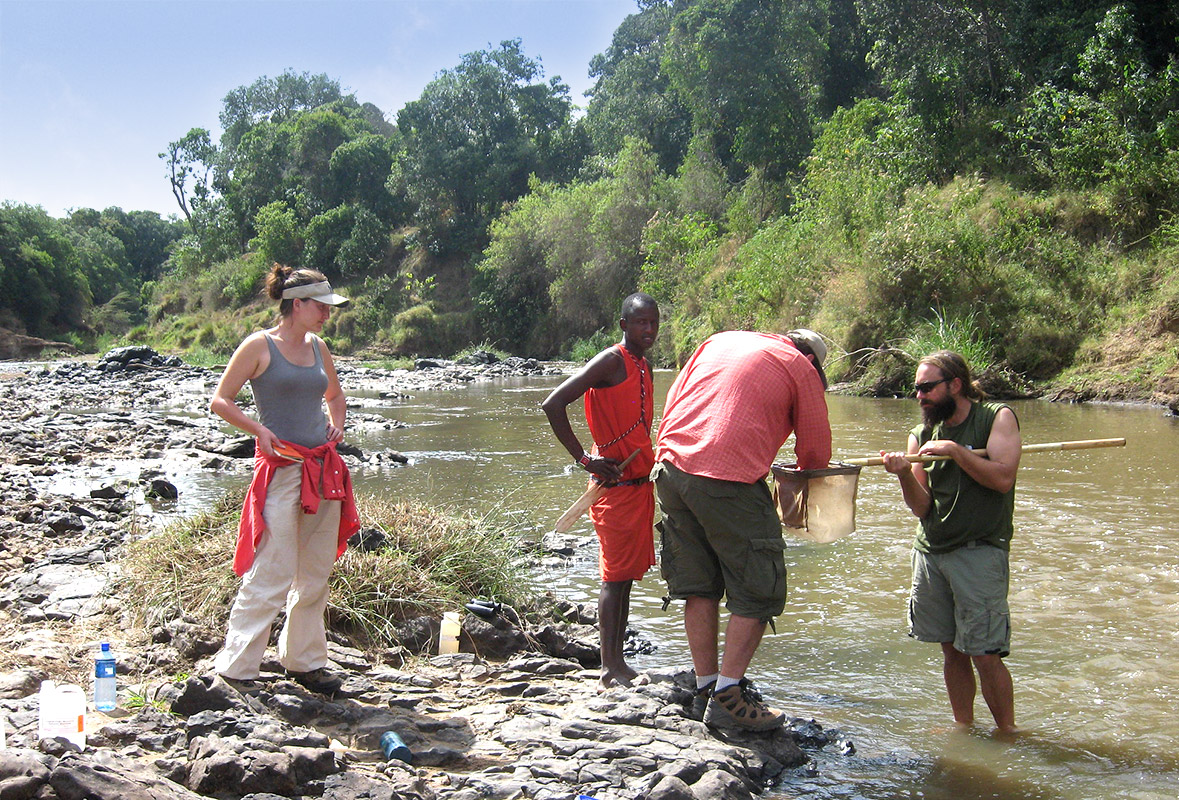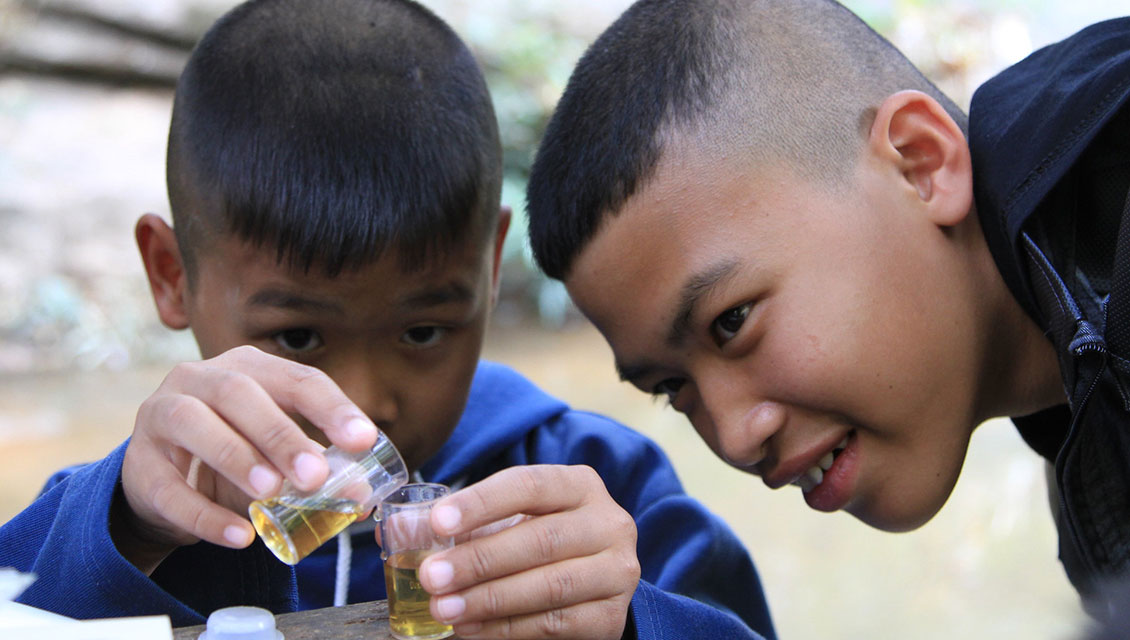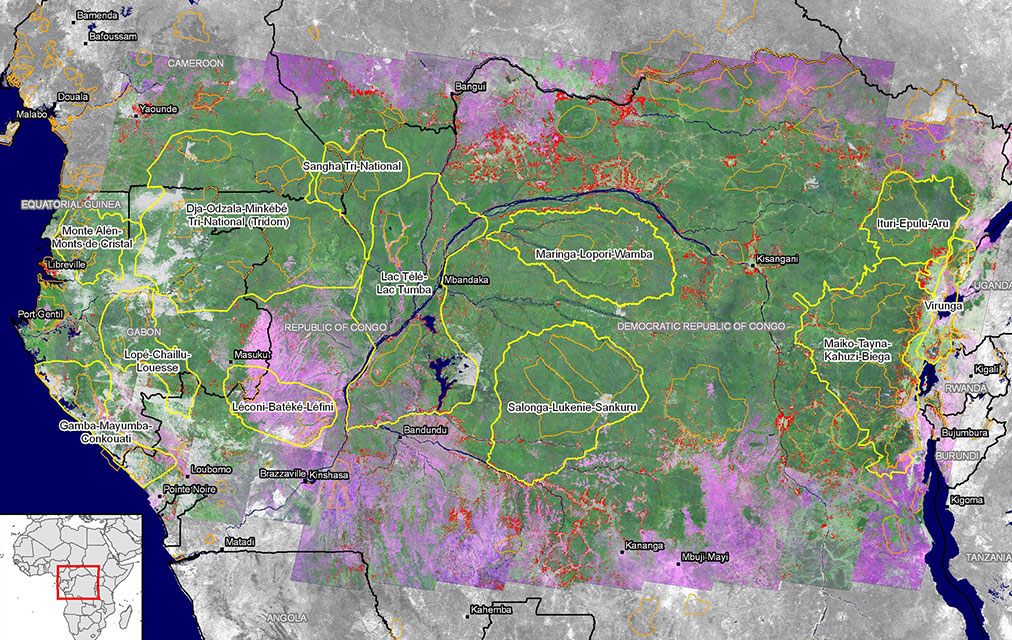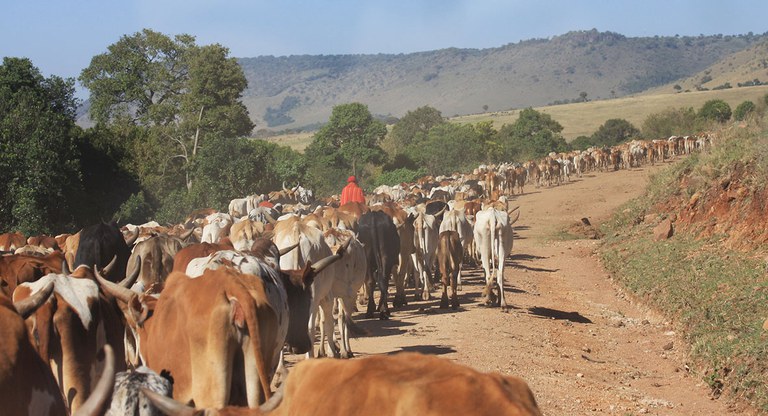Tapping Academic Skills for Knowledge Underpinning Policy (TASKUP) is an opportunity to engage diverse academic communities--particularly graduate students--in research topics relevant to biodiversity conservation and international development. TASKUP shares emerging thematic questions that, if answered, could help fill knowledge gaps and assist USAID’s biodiversity programming. The first theme that TASKUP delves into is One Health and the critical role of healthy ecosystems.
TASKUP is not a funding opportunity but rather, an opportunity to foster actionable science between the academic and development communities. Graduate students and early-career academics may benefit from collaborating with USAID through the sharing of expertise and research goals.
If you are interested in pursuing research in one of the following questions or themes, please contact us. Our One Health experts would be happy to provide additional information, help facilitate outreach to relevant USAID mission contacts and, if time allows, serve as a mentor.
Ecosystem Health Questions
Learn more about the following questions or themes:
- How do positive or negative externalities (i.e., infrastructure projects, disruption of food supply chains, social media coverage) influence consumer demand for wild meat and subsequent risk of zoonotic spillover? And how can government policies support solutions to mitigate externalities that increase consumer demand and spillover risk?
- Xiao, X., Newman, C., Buesching, C. D., Macdonald, D. W., & Zhou, Z. (2021). Animal sales from wuhan wet markets immediately prior to the COVID-19 pandemic. Scientific Reports, 11. https://www.nature.com/articles/s41598-021-91470-2
- Rentsch, D., & Damon, A. (2013). Prices, poaching, and protein alternatives: An analysis of bushmeat consumption around serengeti national park, tanzania. Ecological Economics, 91, 1-9. https://www.sciencedirect.com/science/article/abs/pii/S0921800913001122
- Which land management approaches for terrestrial, coastal or marine protected areas (i.e., restoration/reforestation, rewetting peatlands/mangroves, private governance, ecotourism development) are most effective at maintaining healthy wild animal populations with strong immune systems (i.e., minimal stress-induced immunosuppression)?
- Messina, S., Edwards, D. P, Eensa, M., & Costantini, D. (2018). Physiological and immunological responses of birds and mammals to forest degradation: A meta-analysis. Biological Conservation, 224:223-229. https://doi.org/10.1016/j.biocon.2018.06.002
- Plowright, R. K., Reaser, J. K., Locke, H., Woodley, S. J., Patz, J. A., Becker, D. J., Oppler, G., Hudson, P. J., & Tabor, G. M. (2021). Land use-induced spillover: A call to action to safeguard environmental, animal, and human health. The Lancet. Planetary Health, 5(4), e237-e245. https://www.sciencedirect.com/science/article/pii/S2542519621000310
- What impacts do current agricultural waste management strategies have on the development of antimicrobial resistant (AMR) bacteria in soils? How could, for example, waste composting and containment strategies achieve maximal soil health benefits while minimizing risk of AMR soil leaching?
- Buelow E., Ploy, M-C., & Dagot, C. (2021). Role of pollution on the selection of antibiotic resistance and bacterial pathogens in the environment. Current Opinion in Microbiology. 64:117-124. https://doi.org/10.1016/j.mib.2021.10.005
- Zhao F., Yang, L., Li, G., Fang, L., Yu, X., Tang, Y-T., Li,M., & Chen, L. (2022). Veterinary antibiotics can reduce crop yields by modifying soil bacterial community and earthworm population in agro-ecosystems. Science of the Total Environment. 808:152056. https://doi.org/10.1016/j.scitotenv.2021.152056
- What incentives would most effectively encourage use of ecologically-friendly farming practices or to implement nature-based solutions that co-benefit both long-term watershed conservation and public health?
- Cendejas, J. C., Ramírez, L. M., Zierold, J. R., Valenzuela, J. D., Ibarra, M. M., Sánchez de Tagle, S. M., & Téllez, A. C. (2021). Evaluation of the Impacts of Land Use in Water Quality and the Role of Nature-Based Solutions: A Citizen Science-Based Study. Sustainability, 13(19), 10519. https://doi.org/10.3390/su131910519
- What political and/or economic frameworks best support cross-sectoral collaboration for One Health services (i.e., services that support human, animal, and ecosystem health) across transboundary landscapes?
- Liu, J., Yong, D. L., Choi, C-.Y & Gibson. L. (2020) Transboundary frontiers: An emerging priority for biodiversity conservation. Trends in Ecology & Evolution. 35(8):679-690. https://doi.org/10.1016/j.tree.2020.03.004
- Charfeddine, L. & Mrabet, Z. (2017). The impact of economic development and social-political factors on ecological footprint: A panel data analysis for 15 MENA countries. Renewable and Sustainable Energy Reviews. 76:138-154. https://doi.org/10.1016/j.rser.2017.03.031
Please note that these questions can be adapted for the country or region of your interest. When and where feasible, USAID may be able to provide country-context information and contacts. For more information, check out BiodiversityLinks.








